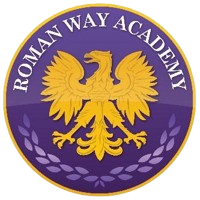Geography
How we teach, learn and assess Geography at Roman Way Academy
“It seems to me that the natural world is the greatest source of excitement; the greatest source of visual beauty; the greatest source of intellectual interest. It is the greatest source of so much in life that makes life worth living.”
- David Attenborough
At Roman Way Academy, we seek to inspire in children a life-long curiosity and fascination about the world and its people; to encourage their interest in and understanding of diverse places, people, resources and natural and human environments, together with some of the Earth’s key physical and human processes.
The teaching of geography is linked to the interaction between the physical and the human environment. Several of our curriculum units present opportunities to help make children aware of the effects of humans upon our environment, as well as how we can contribute to protecting the Earth’s resources for future generations.
Children’s geographical learning begins in Nursery and Reception following the Early Years Foundation Stage framework. 'Understanding the World' involves guiding children to make sense of their physical world and their community through opportunities to explore, observe, question and find out about people, places, and their environment.
In key stage 1 and key stage 2, geography is taught as part of our two-year cycle. We alternate our geography and history topics, ensuring that our children receive well-rounded teaching of the humanities subjects throughout the year.
Geographical skills and knowledge are progressively taught, expanding outwards from the immediate locality to the global with comparison and contrast to the local emphasised throughout. By the end of their schooling, children can demonstrate skills that include the following:
- Locational knowledge;
- Place knowledge;
- Human and physical geography;
- Geographical Enquiry and Fieldwork;
- Map skills.
Teachers seek to develop subject specific vocabulary through explicit teaching and modelling. Key geographical knowledge and language is revisited frequently, to make learning memorable, relevant and easy to retrieve.
Geography is assessed in a variety of ways. When planning, teachers use the progressive skills ladder as well as the long-term overview to keep coverage consistent and interlocking to previous learning. Teachers will start lessons with a retrieval question which gives the children the opportunity to question, explore and strengthen their understanding.
Each lesson is framed in terms of a learning question which the teaching and learning will strive to answer by the end of the lesson. The question serves as a stimulus for thought and a useful device to review learning at the end of the lesson.
Other types of formative assessments are also used within geography as part of the Roman Way Assessment Strategy. Termly assessments are recorded on Insight and progress is reported to parents at the end of each academic year as part of the annual report.
Useful websites:
BBC Bitesize:
